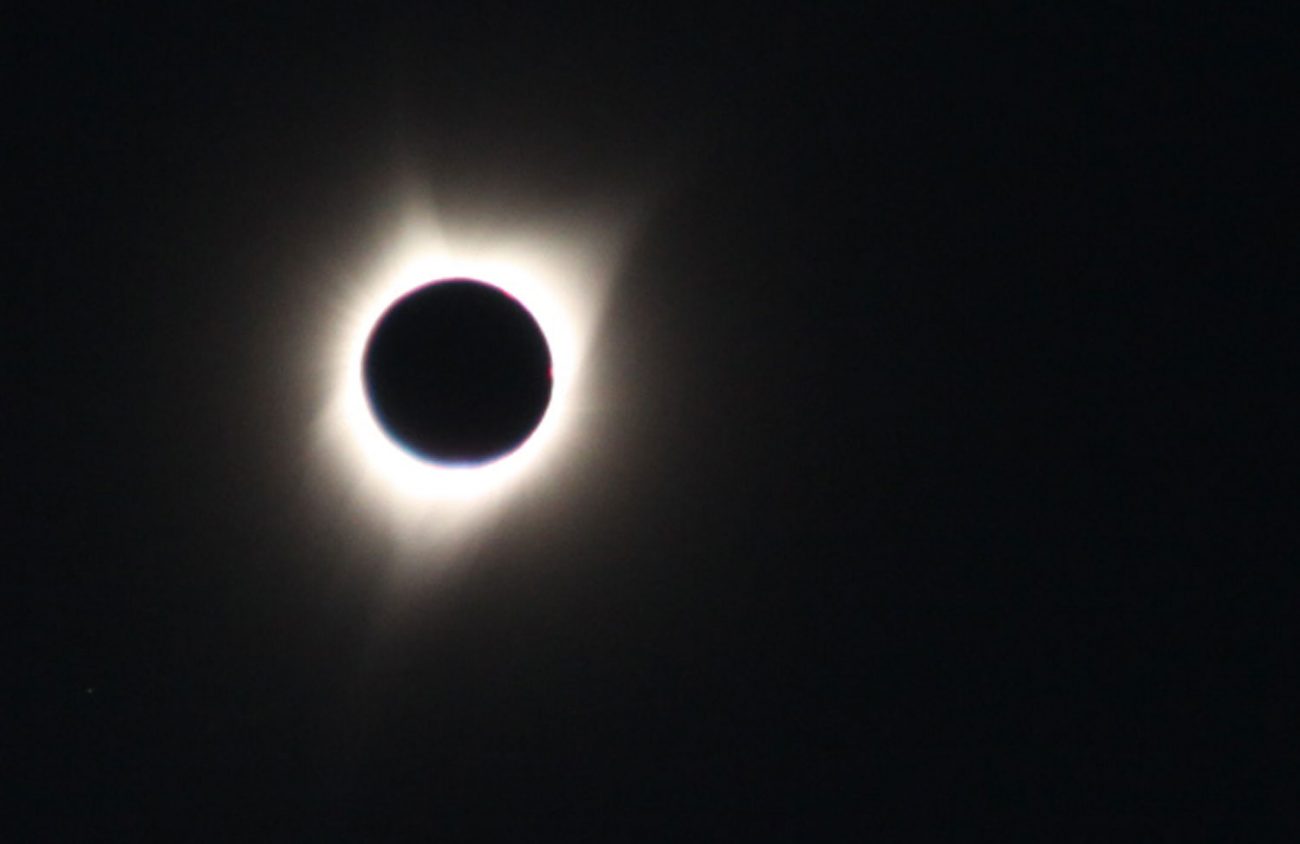At 9 am on Aug. 21, Salem’s downtown streets were sparsely populated with cars and people. As the moon slowly began to cover the sun, people who were stopped in parking lots and sitting on sidewalks gazed toward the sky.
Doug Filipenko traveled from Vancouver, British Columbia, and stayed in Portland for the weekend. He arrived in Salem around 5 am. Filipenko says he witnessed a solar eclipse as a kid during the ’60s. “It’s a beautiful city — this is the closest we could get to totality.”
An employee of a Wells Fargo branch opened the door with glasses in hand, checking on the status of the moon’s shadow moving across the sun.
The lawn surrounding the capitol building was dotted with lawn chairs and blankets. Charles Martey took the day off from work and drove from Happy Valley. He saw a total solar eclipse in Ghana in 2005 while he was in college. “That was my first time. I hadn’t seen anything like that — I just read about it in books, so seeing it for the first time was amazing … so yeah, I was actually really excited to know that it was happening today.”
Martey says he witnessed birds growing confused as the morning sky went dark. “It was really cool. Many of the birds all kind of flew back down because apparently they use the light to determine their bedtime, so they felt like it was their sleep time — they all came down. And right when the light came back on they all went back,” he says.
Martey adds that he came to see his second eclipse “to be a part of history.”
Hundreds, maybe thousands, of people were camped out on the capitol’s state park lawn. At about 10:13 am, the moon left a thumbnail-sized sliver of the sun and the light created a surreal glowing effect across the crowds. People were illuminated with a golden rose-colored light differing from the golden light created by a sunset, a light that appeared to be a combination of sunrise and sunset — a brilliance that can only be recreated by an alignment of the moon positioned between the sun and the Earth.
An announcer on the capitol steps told the crowd that the weather will feel like spring instead of summer once the sun was completely covered.
And as that light grew brilliant and then dimmer, people began to cheer, whistle and vocalize their amazement. All at once, we threw off our glasses and looked at the blazing sun blocked by the moon. The sky was mostly dark, but it looked like dusk along the horizon.
A dog lay on the park steps gazing out into the crowd unfazed by the loud cheering and disappearance of the sun. Red beams developed around the rim of the moon, and excitement and awe grew on the faces of the watchers.
When the moon gave way to the sun, the announcer instructed everyone to put their glasses back on. The sky grew lighter again, and people began to leave.
Tristan Wylde-Larue, a student at Reed College in Portland, was beside himself. “It was probably the coolest thing I’ve ever seen,” he says. “I didn’t have the highest of expectations, but I would definitely drive 12 hours to see that. It was worth it.”
Romeo Le traveled from Las Vegas and met a group of friends in Seattle before driving down to Salem at 2 am. Le saw a partial eclipse in Sacramento when he was younger. “Nothing like when it was totality,” he says. “It was awesome. Everyone here has been amazingly friendly, so it made the experience a lot better.”
